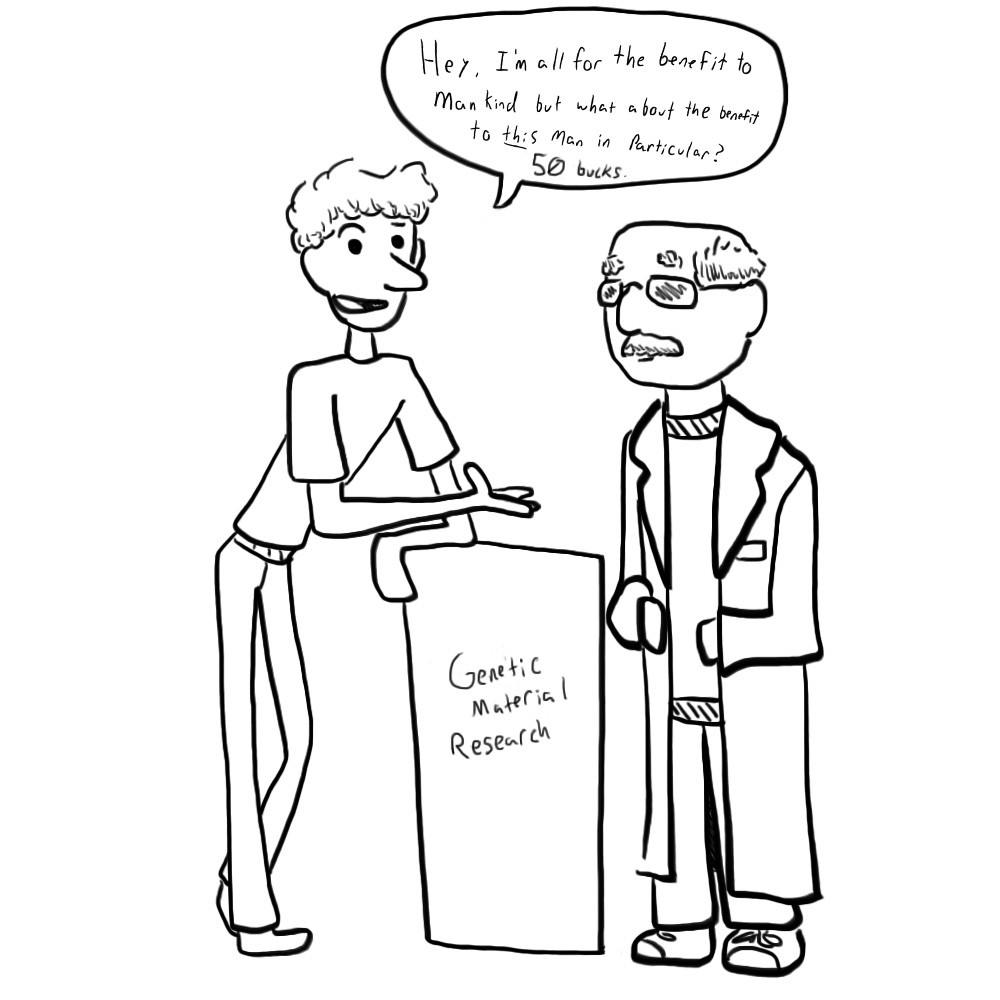In her 2010 book ”The Immortal Life of Henrietta Lacks,” Rebecca Skloot told the tale of a black tobacco farmer from Virginia whose cancerous cells were posthumously and unwillingly taken and researched as the subjects of over 60,000 scientific studies.
The book served as the forerunner to what is now commonly referred to as the biorights movement.
Today, the family of the book’s late namesake feels it has been slighted. After all, Lacks’ cells have spawned research and discoveries that have precipitated huge profits, and it was all done without notice.
While the Editorial Board believes donors should generally be required to consent before agreeing to the use of their DNA, there are a few valid arguments on the other side of the issue as well.
Under most circumstances, it’s reasonable that DNA donors should like to know the uses and results of their contributions. When individuals sell plasma without thinking twice, you more or less know what will happen with it. The information potentially contained within something as basic as saliva, though, leaves many more possibilities, and this uncertainty can be troubling.
Last May, in the midst of increased advocacy for the biorights movement, the American Civil Liberties Union brought a complaint to the United States Department of Health and Human Services requesting that medical donors receive access to all of the uses of and information extracted from their DNA.
Theoretically, it does not seem unreasonable or infeasible to require this. However, creating legal and regulatory hurdles to obtain samples can lead to difficulties, especially when prognoses are serious and lives are in danger.
Dr. Alexander Lazar of the Anderson Cancer Center in Houston expressed concern that added barriers could hinder researchers’ ability to study the rare Desmoid tumor, which are already in short supply.
In situations such as these, ethical standards become much more obscure.
The potential for monetary gains adds another dimension. Sixty-eight percent of those surveyed by the American Medical Association said they would be willing to donate samples for any purpose.
When informed their donations would be used to “develop patents and earn profits for commercial companies,” the number was only 55 percent. Unfortunately, it’s obvious that individuals are less altruistic when there is money to be made. But when pharmaceutical companies are developing for-profit drugs based on free biological samples, donors should earn a slice of the pie.
Recently, the market has recognized this. Some medical start-up companies, like DNAsimple, have begun paying individuals for biological samples.
Some would point to the irony in the fact that Americans accuse medical institutions of financial manipulation and in this case demand compensation for things as seemingly inconsequential as saliva.
However, when these samples are estimated to generate $23 billion by 2018, there’s no reason some of these gains can’t be passed back to the people who made them possible.
We feel that despite the validity of some of the concerns with heightened regulatory standards of DNA donation, there are relatively few good reasons as to why individuals should continue to be kept in the dark and without pay for their contributions.
When lives are at stake, exceptions may be necessary, but institutions should still make every effort to be as transparent as possible.




